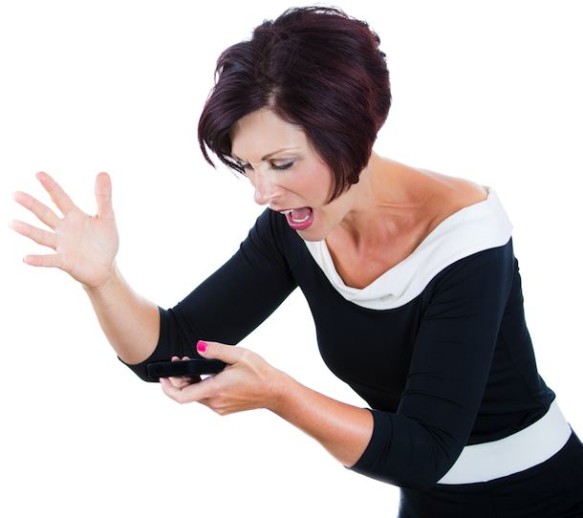Upgrade to the Latest Stationary Phone
We came across an interesting story by Lane Wood, a San Franciscan who, after taking an impromptu dip in a lake, accidentally drowned his iPhone 5. Rather than immediately replace the uninsured phone, Lane decided to try a month phone free–no small feat for this hyper-connected freelancer.
Though Lane did go without his phone, he didn’t go offline. He still had his computer and carried around an iPad mini rather than his phone. He used Skype, iMessage, Google+ Hangouts and other tech to keep connected. He scheduled important calls for when he knew he’d be available.
The iPad may strike some as a big cheat, but he described how pulling the tablet out to text or web-browse was far more conspicuous than the constant sneak peeks he had previously given his phone. He also pointed to the fact that he couldn’t throw the iPad in his pocket, where his phone used to sit waiting to distract.
He writes at length about his phone’s vibrate mode, which he called “the secret killer of mental clarity.” For many of us (such as this author), we think we’re being pretty considerate leaving our phones on vibrate. But even though they are inaudible to all but us, Lane accurately described how his previous insistence to heed the vibration was almost as insidious as an audible ring. The constant “temper tantrum” of a phone’s vibrator begs us to divert our attention from the present moment to see who’s trying to contact us (it’s never that important, is it?). Lane replaced the persistent pocket vibration for the blissful unawareness of incoming texts, emails and calls on his iPad stowed in his bag.
He also noted that he used the iPad for taking photos. Once again, pulling out the ungainly device made him more judicious about what was and was not photo-worthy.
Lane’s experiment is more interesting to us because he didn’t go totally offline; that proposition is a bit extreme for most of us. What his experiment does is call into question the necessity for cell phones at all. Many of wake up near our tablets. We commute to be in front of our work computers. Maybe we travel with mobile hotspots. We come home and are near our computers once again. Every one of these pieces of tech have the ability to make and receive calls, texts and emails (through Skype, Google Voice, iMessage, Facetime, etc). What if we thought used these non-phone-devices as our “landline” phones?
We won’t minimize the need for some of us to have cellphones. They’re necessary hardware for many professions. But for the rest, what are the real consequences of being unreachable for a few hours a day?
Also, from a historic standpoint, Lane’s experiment is really no different than the way we all lived 30 years ago–a dark age when we had to be at home or at work to make and receive calls, when we made plans in advance, when our every waking moment wasn’t subject to a cellular invasion. Remember, James Joyce wrote Ulysses without a cellphone and Stanley Kubrick directed “2001: A Space Odyssey” without one too (we assume). Life wasn’t so bad or unproductive back then.
All this said, Lane did buy a new phone, calling his experiment a “disruption for [his] family, friends and clients.” This author, despite the questions Lane evokes, feels no urge to ditch my phone.
For those of us not ready to lose our phone, Lane did offer a few “discipline hacks” to curb MPU (mindless phone use) without giving up your phone:
- Turn your screen brightness all the way up when you go out at night. You will be very painfully aware of the fact that you’re using a phone and it will drain your battery. These consequences will help you use your phone only when necessary, and your friends will be more likely to call you out for having your phone out.
- Experiment with using Do Not Disturb functionality and turn your notifications off. Don’t reward your phone for throwing tantrums.
- Make an agreement with family and friends to call each other out for MPU.
What do you think? Would you, do you live without a cellphone? Would you, could you use your computer and/or tablet as your landline? Let us know what you think in our comments section below.
Screaming angry woman image via Shutterstock





